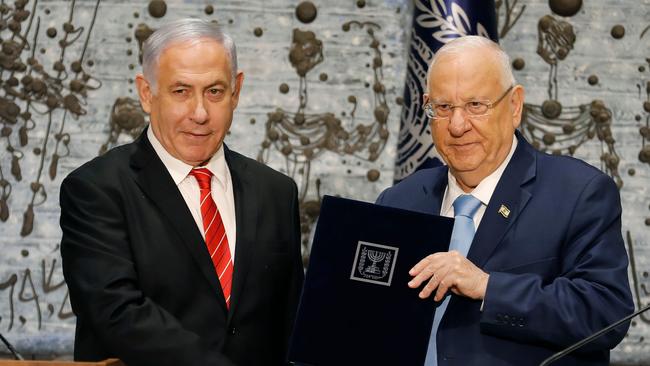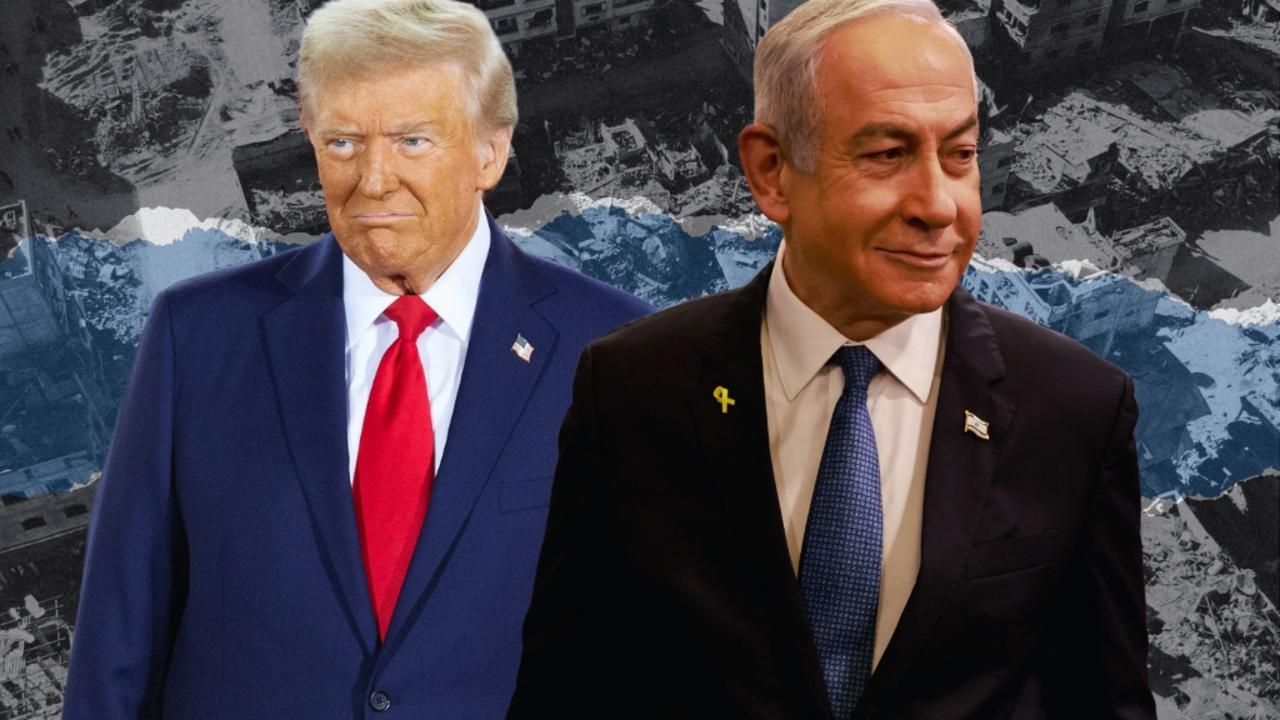Netanyahu given first chance to form Israel’s next government
Israeli Prime Minister Benjamin Netanyahu has been given the first go to try form a government.

President Reuven Rivlin of Israel has tapped Benjamin Netanyahu to form the next government, giving the Prime Minister a lifeline as he tries to maintain his hold on power while facing possible bribery and fraud charges in the coming weeks.
Mr Rivlin’s decision, based on the number of pledges from MPs to support either Mr Netanyahu or his rival Benny Gantz, came after talks between the two to form a government of national unity broke down. The President met twice this week with the two party leaders to try to pressure them into reaching a power-sharing pact, but the logjam persisted.
While Mr Netanyahu has the first chance to form a government, it is far from certain he will pull it off in the up to six weeks he has to do so. He couldn’t secure the support of at least 61 members of the 120-member Knesset to govern after winning an election in April. To be successful this time, he will need to win over at least one of several parties that promised not to join his government.
Mr Netanyahu’s reliance on religious parties, along with Mr Gantz’s pledge not to serve in government with Mr Netanyahu while he faces possible charges, have bedevilled efforts to form a broad government. The Prime Minister has denied any wrongdoing.
“It doesn’t matter who I will impose the mandate of forming a government on first,” Mr Rivlin said on Thursday. “As long as the rejection and ostracisation of entire communities in Israeli society don’t cease … no government shall form.”
Israel’s Central Elections Committee on Wednesday released the final results of the September 17 vote in which Mr Netanyahu’s Likud party won 32 seats and Mr Gantz’s Blue and White party won 33 seats. Mr Netanyahu secured pledges of support from 55 MPs, while Mr Gantz garnered 54.
Mr Rivlin listed several arrangements under which Mr Gantz and Mr Netanyahu could share power, but he said the two had rejected them all.
Despite several days of failed talks, Mr Netanyahu said on Thursday he wanted to move quickly to reach a deal with Mr Gantz on a unity government, in light of the Trump administration’s forthcoming peace plan and threats from Iran.
“The present need is for a broad national unity government — and I would say quickly,” he said, adding he would need Mr Gantz’s help to get there after struggling to find support from others.
Mr Gantz, a former military chief, drew much of his support during the campaign from voters who were tired of Mr Netanyahu’s long tenure. He repeated that he would not “sit in a government whose leader is facing a severe indictment”.
The coalition discussions are being clouded by Mr Netanyahu’s legal challenges. He faces a pre-trial hearing next week to defend himself against the Attorney-General’s recommendations he be charged with bribery and fraud. If he maintains his prime ministerial seat, he wouldn’t be forced to resign should he be charged.
Mr Netanyahu became the country’s longest-serving prime minister this year, after serving one term in the 1990s and three since 2009. His reputation for outmanoeuvring opponents and preserving his hold on power has earned him the nickname “the magician”.
Mr Netanyahu pledged on Thursday to return the mandate to Mr Rivlin if he can’t quickly form a government. He has 28 days to try and can request a 14-day extension. After that, Mr Rivlin can task a second member of the Knesset — presumably Mr Gantz — to take a shot. It that were to fail, the country would likely go to another election.
During the election Mr Gantz pledged to form a secular unity government without Israel’s ultra-Orthodox parties. These parties have been an important source of support for Mr Netanyahu. Avigdor Lieberman’s Yisrael Beiteinu party, with eight seats, could give Mr Netanyahu enough support to form a government. But Mr Lieberman has refused to back him and didn’t join him after the April vote, citing Mr Netanyahu’s reliance on religious parties.
The Wall Street Journal


